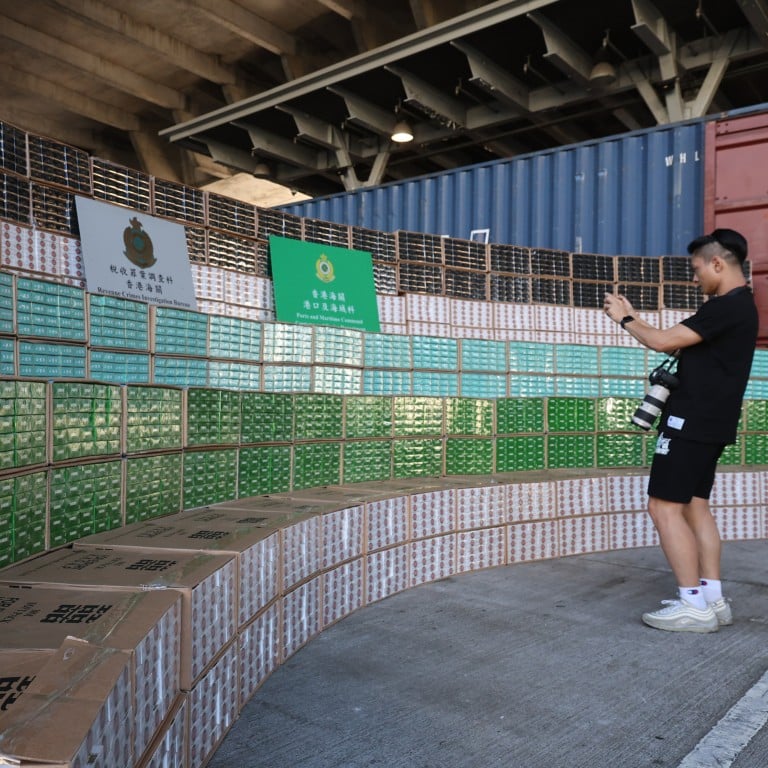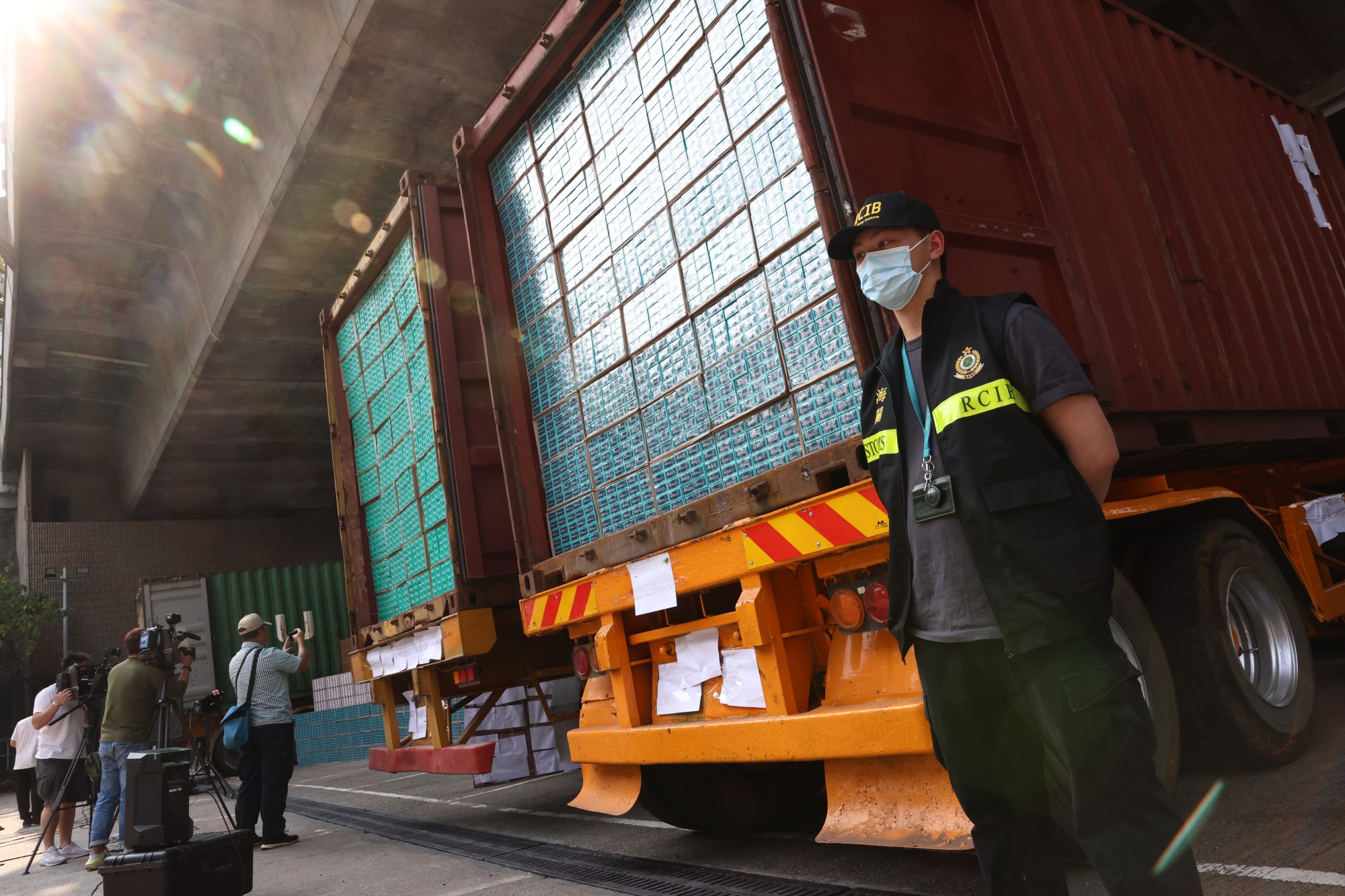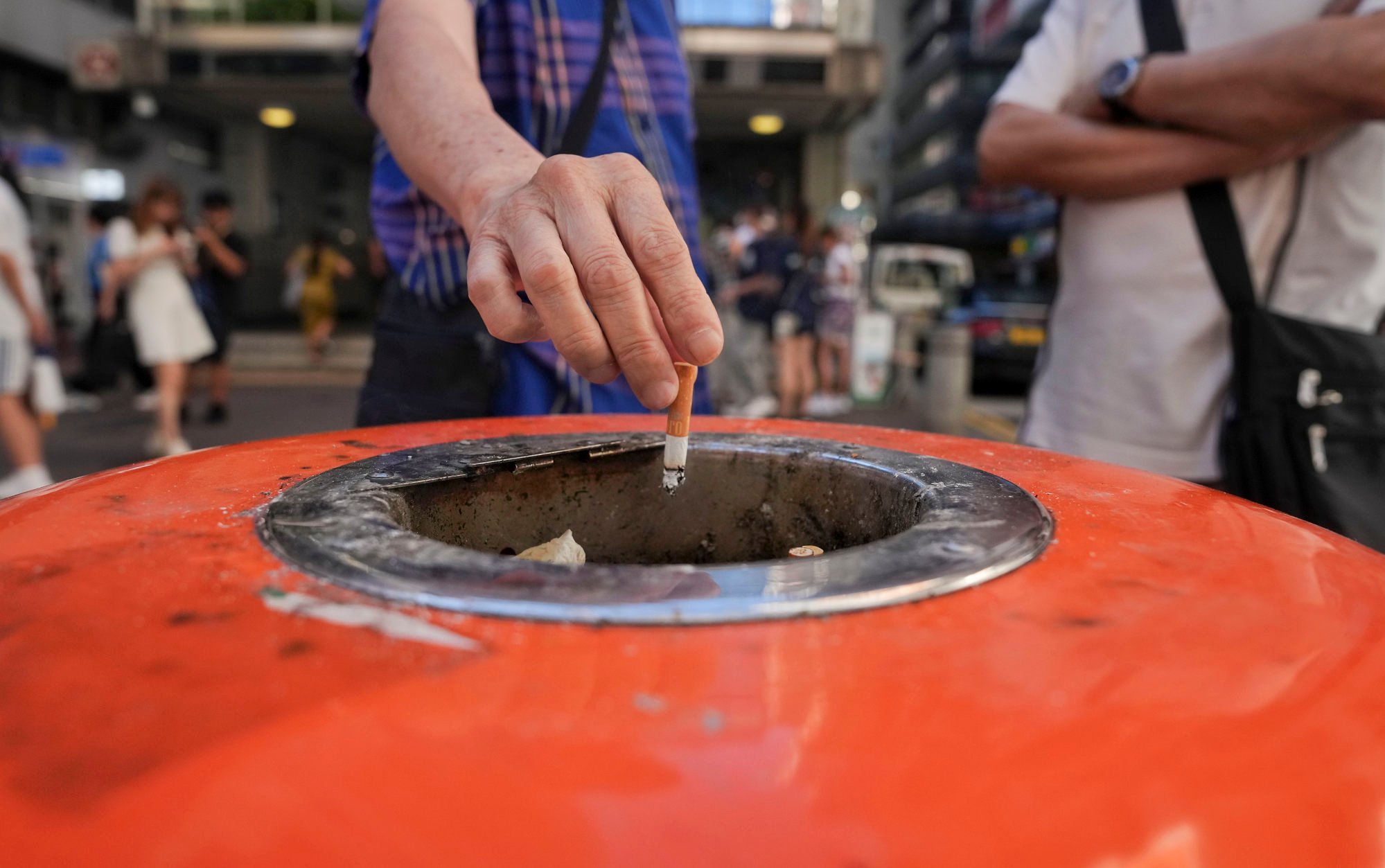
Cut-price Hong Kong cigarettes spark call for loophole in duty regulations to be closed
- Post check finds cigarettes for sale in stores, stands and online for far less than the HK$78 (US$10) well-known brands go for
- Health campaigners and trade bodies say better identification of duty-paid tobacco would make it easier to identify black market cigarettes
Cut-price cigarettes costing about a third of the normal Hong Kong price per packet sparked calls on Wednesday for enforcement agencies to close a loophole that made illicit tobacco products easier to buy and sell.
A check by the Post found cheap cigarettes for sale in convenience stores and newspaper stands across the city, as well as online, at well below the HK$78 (US$10) price for well-known and popular brands.

Lam Cheung-fu, chairman of the Hong Kong Newspaper Vendors Association, said potentially illicit cigarettes, dubbed “cheap whites”, were usually of lesser-known brands and smuggled into the city from Southeast Asia.
He added a loophole in the removal permits for duty-paid goods – issued by customs officials after the tax on tobacco was paid – could make it tough for vendors and officials to identify illicit cigarettes.
“The syndicates would pay the tobacco duty for a small number of imports to get the permit, which does not specify the batch it covers,” he explained.
“When the smuggled cigarettes of the same packaging got checked, they could simply show the permit they got from the duty-paid batches without getting caught.”
He said the syndicates would hire people to sell the cigarettes to news-stands and stores at cut rates that ranged from HK$20 to HK$30 per pack.
Hong Kong customs seizes HK$200 million worth of illegal cigarettes in 2 operations
Lam said he believed more smokers would turn to illicit products, which were common in the city, if authorities raised tobacco tax without plugging the holes in the enforcement process.
He was speaking after the Post found several online stores with cigarettes for sale as cheap as HK$23 for 20, about a third of the usual price and well below the HK$50 tobacco duty charged on each pack.
The government in February raised the duty on a pack of cigarettes by HK$12 (US$1.50).
A pack of a popular brand of cigarettes now costs about HK$78 while others are sold at a few dollars less.
One of the online retailers told the Post it could deliver cigarettes, sold in 10-pack cartons for HK$330, inside three days.
The staff member said the cigarettes, shipped from Korea, were cheaper because the company only sold them by the carton of 200 sticks.
The Post also discovered retailers selling cigarettes priced as low as HK$44 for a pack of 20.
Those included branches of a convenience store chain in Jordan and Mong Kok and two newspaper stands.
A pack of 20 cigarettes of a lesser-known brand was on sale for HK$54 in the stores and the price was as low as HK$44 with a 10-pack bulk discount at the Mong Kok outlet.
A staff member at one store said the low price could be due to the brand while employees at another shop declined to comment.
Ban on cigarettes for Hongkongers born after certain date proposed
Two newspaper stands approached by a Post reporter sold cigarettes for as low as HK$52 a pack, but both declined to explain the cheap price.
Anyone involved in dealing in, possession, sale or purchase of black market cigarettes could face a fine of HK$1 million and two years in jail.
Health authorities, as part of the public consultation, floated the idea of labelling every duty-paid cigarette to identify illicit products.
Henry Tong Sau-chai, chairman of the Hong Kong Council on Smoking and Health, appealed to authorities to launch investigations when cigarettes were spotted on sale at suspiciously low prices.
He backed the labelling of duty-paid cigarettes to make enforcement easier because officials could use electronic scanners to locate unlabelled tobacco products.

“It would be best if both retailers and residents could simply use a mobile app to verify the duty-paid label, and prevent being tricked into selling or buying illicit ones,” Tong said.
Lawmaker Chan Hoi-yan agreed that labelling duty-paid cigarettes was a potential solution to the problem of illicit goods, but added that would need the cooperation of tobacco companies.
She said a quicker solution would be tighter regulation of shops selling tobacco products, with regular patrols and spot checks.
Fellow lawmaker Peter Shiu Ka-fai said the loophole made enforcement on the retail front difficult and customs officials could only rely on intelligence to detect illicit cigarettes or crack down on smuggling.
The retail sector lawmaker said use of a special mark or symbol on duty-paid tobacco to make it easier to spot black market products could be considered by the industry.
The customs department said it used intelligence-based methods to combat the trade in illicit cigarettes, ranging from interception of cross-border smuggling to inspections of places where tobacco was sold.
The department added that about 406 million suspected illicit cigarettes were seized in the first half of the year.



